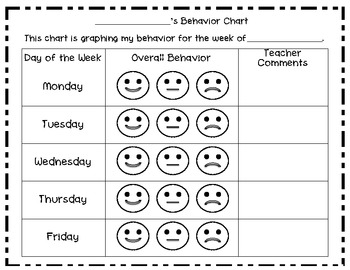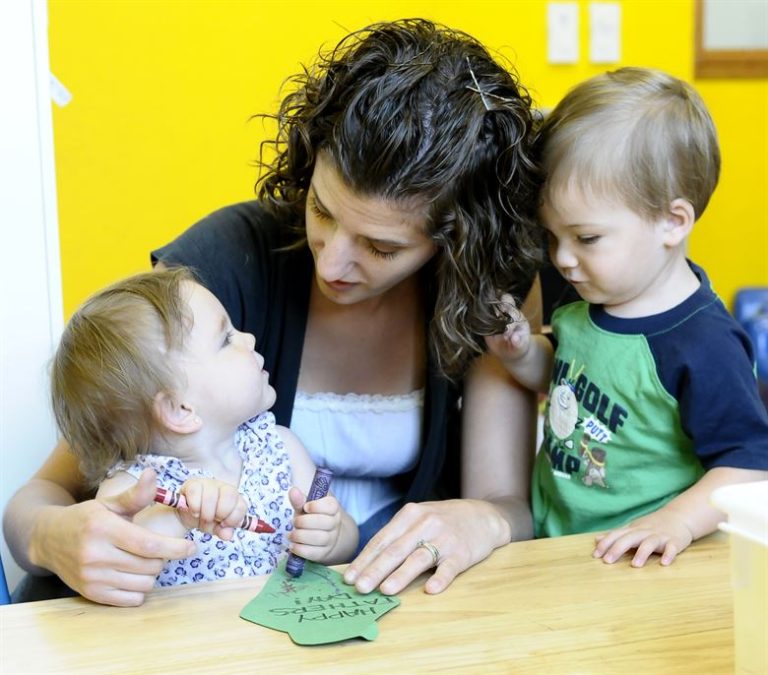Building Positive Relationships
Building positive relationships is an essential component of an early childhood classroom. One of my favorite quotes is by Jack Shonkoff, editor of the book Neurons to Neighborhoods, in which he says, “Without relationships, there is no development.” In other words, if children do not develop positive relationships with the significant people in their lives, they fail to thrive. If you think back on your own experiences, I imagine that the times when you learned the most were when you felt connected to the teacher.
I love inspirational videos. And when I think about everyone that I’ve heard talk about building positive relationships with children, I think about Rita Pierson. She’s as real as they come when she describes teaching children. But the thing I love best about this video is her perspective on seeing the positive.
I get so inspired listening to her, and I start thinking about all the ways I can be more like her! As you think about your classroom and the children in it, there is always an opportunity to build stronger, more positive relationships. Below are some tips to help you.
Tips for Building Positive Relationships
Be Nice
This one should go without saying. However, when I walk into many schools, I see teachers that seem irritated by the children. As a result, I think about the experiences that many children have when they arrive at school. Another one of my favorite videos is this short video from Atlanta Speech School called Every Opportunity. We can influence how children perceive their environment, themselves, and us.
Personalize Your Greeting
- Greet each child warmly using his/her name. Consider using a greeter apron. A greeter apron has different symbols representing different types of greetings, such as a heart for a hug, a hand for shaking hands, a happy face for a smile, or a #5 for a high five. Children can choose how they want the teacher or classmates to greet them in the morning, including not having a greeting at all. Learn more about personalizing your social interactions to build positive relationships in my blog post “Respecting Children’s Social Preferences.”
Respect Children’s Culture
- Every child comes from a family with a specific culture. Take time to learn about each family, their traditions, and their preferences. Learn which holidays they celebrate and which they don’t. Find out the names they use to refer to other family members.
- Learn how to pronounce (and spell) each child’s name correctly, even if you have to ask multiple times. No one feels special when his/her name is constantly mispronounced or misspelled.
- Learn essential words in a child’s native language that help you communicate effectively. Encourage the family to speak the native language at home with the child. You can learn more about best practices in my One Classroom, Many Languages: Strategies for Dual Language Learners” course.
Build Positive Relationships with Unstructured Play
- Allow for unstructured playtime each day. Let children be the leaders when playing instead of making all of the decisions for them. This shows children that you value their thoughts, desires, and feelings. It also lets the children have some control of their day. Let’s face it; no one wants to be told what to do all the time. Allowing children to have some control will also enable them to see you as a positive person in their life.
Real Conversations with Children Build Positive Relationships
- Have casual conversations with children during free play time instead of constantly “testing” them or doing “teacher talk.” Sometimes we ask so many questions that children don’t think we are interested in what they are doing. Instead, spend time on the floor or at the table interacting with children individually or in small groups. Let them lead the conversation.
- Talk to children about their interests. Strive to learn what they did over the weekend, who they saw, what they liked most, etc. Studies show that toddlers’ language outcomes increase when we talk about subjects that they are interested in.
Consistency Builds Positive Relationships
- Be consistent and mean what you say. In other words, you have to think carefully about what you say to children before you say it. It’s not mean to follow through on your word. Instead, it helps children to feel safe. When you set a limit with a consequence and then provide multiple chances, it can confuse children with what the boundary is.
- Build relationships with children who have challenging behaviors. The more positive your relationship is, the more likely you will see compliance.
Respect Children’s Feelings & Privacy
- Respect children’s feelings. It’s ok for children to be angry, sad, or frustrated. Teach children that feelings are ok, and show them appropriate ways to express their feelings. When your child becomes a teenager, you’ll want them to share their emotions. Teach them now.
- Speak privately to children when an issue arises in the classroom. This means that you aren’t calling a child’s name out across the room every time they do something wrong. And you aren’t marking their behavior on a chart that the whole class can see. Make sure that they don’t feel humiliated in front of others.
Favor Human Interactions Over Screen-Time
- Limit TV and Other “Screen Time.” Electronic devices take time away from connecting with human beings. Instead, use the time children are with you to make live connections. So much research has confirmed that this live connection is vital for brain development.
Play Games
- Play games in which children learn how to take turns. First, playing games provide time for you and the child to spend engaged in a fun activity. As a result, you are on track to build positive relationships. Secondly, game-playing prepares them for conversational turn-taking, which is an essential component in peer relationships.
Think About Your Tone and Position
- Get on the child’s level when talking to him/her. You are more likely to get the child’s attention, and the child will be more receptive to what you are saying. Likewise, make sure you are using a pleasant and calm voice. Respect is a two-way street, and we are role-modeling how to speak to others.
Limit the Use of Praise in Favor of Specific Feedback
- Researchers agree that praise is not always a good thing. Rather than saying, “good job,” acknowledge children’s accomplishments and efforts by using specific feedback about their actions. You can say, “I can see how much effort you put into your block building. You’ve been working on it all morning. Tell me all about it.”
Promote Positive Social Interactions to Build Relationships
- Give children time to develop relationships with other children in the classroom. They need opportunities to practice the skills they are learning from you!
- Provide children with opportunities to practice specific skills such as how to get someone’s attention, how to solve friendship squabbles, and how to take turns. You can do this through role-playing or social stories.
Always Start Fresh
- End each day with a warm goodbye, and start each day fresh with no leftover emotions from the previous day’s events.
When you implement these strategies, you are bound to have positive relationships with all of the children in your classroom. What other ways do you build relationships with children?







